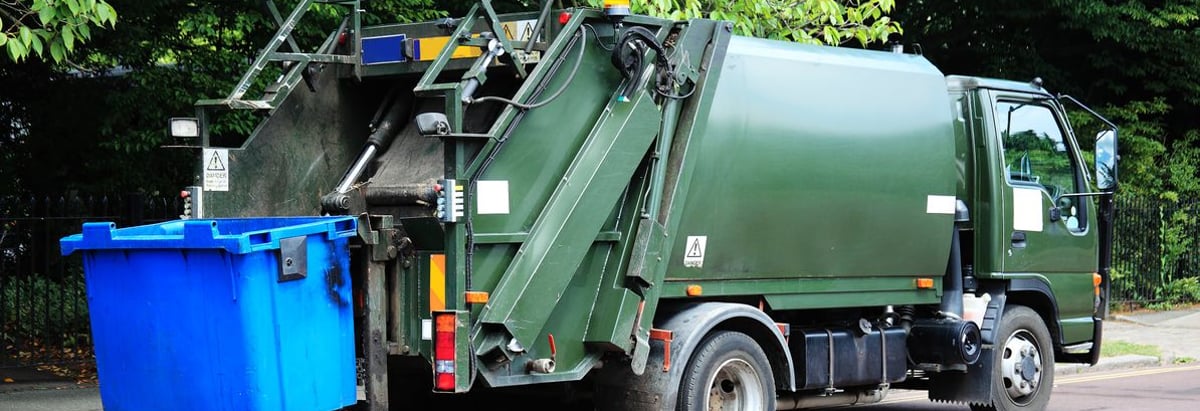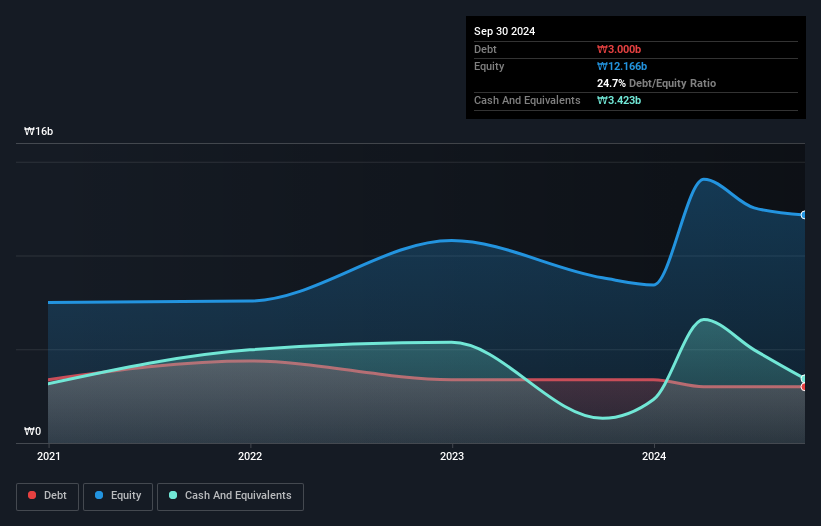- South Korea
- /
- Commercial Services
- /
- KOSDAQ:A068100
Kweather (KOSDAQ:068100) Has Debt But No Earnings; Should You Worry?

Some say volatility, rather than debt, is the best way to think about risk as an investor, but Warren Buffett famously said that 'Volatility is far from synonymous with risk.' It's only natural to consider a company's balance sheet when you examine how risky it is, since debt is often involved when a business collapses. We note that Kweather Co., Ltd (KOSDAQ:068100) does have debt on its balance sheet. But the real question is whether this debt is making the company risky.
When Is Debt Dangerous?
Generally speaking, debt only becomes a real problem when a company can't easily pay it off, either by raising capital or with its own cash flow. In the worst case scenario, a company can go bankrupt if it cannot pay its creditors. However, a more common (but still painful) scenario is that it has to raise new equity capital at a low price, thus permanently diluting shareholders. By replacing dilution, though, debt can be an extremely good tool for businesses that need capital to invest in growth at high rates of return. The first step when considering a company's debt levels is to consider its cash and debt together.
Check out our latest analysis for Kweather
How Much Debt Does Kweather Carry?
You can click the graphic below for the historical numbers, but it shows that Kweather had ₩3.00b of debt in September 2024, down from ₩3.38b, one year before. But it also has ₩3.42b in cash to offset that, meaning it has ₩423.4m net cash.

How Strong Is Kweather's Balance Sheet?
We can see from the most recent balance sheet that Kweather had liabilities of ₩2.53b falling due within a year, and liabilities of ₩2.81b due beyond that. Offsetting this, it had ₩3.42b in cash and ₩1.39b in receivables that were due within 12 months. So its liabilities outweigh the sum of its cash and (near-term) receivables by ₩524.6m.
Having regard to Kweather's size, it seems that its liquid assets are well balanced with its total liabilities. So it's very unlikely that the ₩27.4b company is short on cash, but still worth keeping an eye on the balance sheet. Despite its noteworthy liabilities, Kweather boasts net cash, so it's fair to say it does not have a heavy debt load! The balance sheet is clearly the area to focus on when you are analysing debt. But ultimately the future profitability of the business will decide if Kweather can strengthen its balance sheet over time. So if you're focused on the future you can check out this free report showing analyst profit forecasts.
Over 12 months, Kweather made a loss at the EBIT level, and saw its revenue drop to ₩13b, which is a fall of 7.1%. That's not what we would hope to see.
So How Risky Is Kweather?
By their very nature companies that are losing money are more risky than those with a long history of profitability. And we do note that Kweather had an earnings before interest and tax (EBIT) loss, over the last year. And over the same period it saw negative free cash outflow of ₩3.2b and booked a ₩3.4b accounting loss. However, it has net cash of ₩423.4m, so it has a bit of time before it will need more capital. Summing up, we're a little skeptical of this one, as it seems fairly risky in the absence of free cashflow. When analysing debt levels, the balance sheet is the obvious place to start. However, not all investment risk resides within the balance sheet - far from it. Be aware that Kweather is showing 3 warning signs in our investment analysis , and 2 of those are a bit unpleasant...
When all is said and done, sometimes its easier to focus on companies that don't even need debt. Readers can access a list of growth stocks with zero net debt 100% free, right now.
Valuation is complex, but we're here to simplify it.
Discover if Kweather might be undervalued or overvalued with our detailed analysis, featuring fair value estimates, potential risks, dividends, insider trades, and its financial condition.
Access Free AnalysisHave feedback on this article? Concerned about the content? Get in touch with us directly. Alternatively, email editorial-team (at) simplywallst.com.
This article by Simply Wall St is general in nature. We provide commentary based on historical data and analyst forecasts only using an unbiased methodology and our articles are not intended to be financial advice. It does not constitute a recommendation to buy or sell any stock, and does not take account of your objectives, or your financial situation. We aim to bring you long-term focused analysis driven by fundamental data. Note that our analysis may not factor in the latest price-sensitive company announcements or qualitative material. Simply Wall St has no position in any stocks mentioned.
About KOSDAQ:A068100
Kweather
Provides weather and related services to mass media, industries, and private and governmental organizations in Korea.
Excellent balance sheet very low.
Market Insights
Community Narratives



